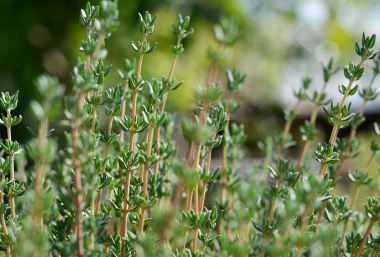The long-debated Plant Variety Rights (PVR) Bill received royal assent on 18 November 2022, becoming the Plant Variety Rights Act 2022. The new Act can be viewed in full here.
The new PVR Act gives effect to the provisions of UPOV 91, without New Zealand becoming a full signatory to UPOV 91. This approach allows New Zealand to meet its obligations under the Comprehensive and Progressive Agreement for Trans-Pacific Partnership (CPTPP) while also following the recommendations from the Waitangi Tribunal report on the Wai 262 claim.
For more information on the background of the new Act, please see our previous article.
Commencement and transitional provisions
The substantive provisions of the Act will take time to come into force because the accompanying PVR Regulations need to be finalised. Once the Regulations have been promulgated, an Order in Council will be issued setting a commencement date. This will likely occur in early 2023.
However, the provisions relating to the appointment of the Māori Plant Varieties Committee came into force immediately. The remainder of Part 5 of the Act, which sets out the rules that apply to indigenous plant species and non-indigenous plant species of significance will not come into force for a least a year. This provides time for the Māori Plant Varieties Committee to be established and provide engagement guidelines before it begins receiving applications.
The transitional provisions state that applications that are currently pending, or that are filed before the substantive provisions come into force, will continue to be governed by the 1987 Act. Many of the old Act rules will also continue to apply to granted cases, for example, the term of a granted PVR application for a tree will remain at 23 years, even though new Act applications will be entitled to 25 years from grant.
Differences between the Act and the Bill
Updates to intellectual property legislation happen very infrequently, and for many of those involved with PVRs, the review of the PVR Act 1987 represented a once in a lifetime opportunity to create better rules for our PVR regime.
AJ Park, along with many of our PVR clients, attended several hui on the PVR Bill and made numerous submissions to both MBIE and the Select Committee as the Bill worked its way through the legislative process.
We are pleased to report that new PVR Act contains some significant changes as compared to the PVR Bill. In particular, the Select Committee adopted most of the changes that we suggested as part of the review process.
MBIE had proposed a unique definition of Essentially Derived Varieties (EDV). We submitted that this definition was too narrow, was based on Australian wording that is in the process of being changed, and deprived applicants of the benefits of conforming to the accepted UPOV definition. The Select Committee agreed with our concerns and have adopted the UPOV 91 definition of EDVs.
Another concern for many breeders was that applications for compulsory licenses only needed to consider whether there was ‘wide availability’ of propagating material rather than a ‘public interest test’ that took into account the broader availability of the variety, such as availability of harvested material. Following our submissions on this point, the Select Committee added both a public interest test and a specific requirement for the Commissioner to consider the availability of harvested material.
We also argued for several amendments to better align the language used in the Bill with the UPOV 91 language, for example the Bill originally contained definitions of “uniform” and “stable” that unnecessarily departed from UPOV 91 language. The Bill was also missing the list of actions that are disregarded for the purposes of novelty that are found in UPOV 91 countries. Again, the Select Committee appreciated the advantages to adopting the internationally approved wording and our proposed changes were included in the new Act.
Unfortunately, our arguments that employers should be able to apply for PVRs as “the breeder” were not successful. This means organisations that employ breeders will still need to provide an assignment from the breeder to apply in their own name.
Another key difference from the Bill is that the term for potatoes was increased to 25 years in the new Act as result of submissions from the potato industry. The Select Committee also retained the PVR Office as a separate entity. This was a request featured in many submissions and reflect the high esteem in which the New Zealand PVRO is held both domestically and overseas.
Key differences between the 2022 Act and the 1987 Act
|
|
PVR Act 1987 |
New PVR Bill |
|
Māori PVR committee and kaitiaki condition |
|
Creation of a Māori plant varieties committee to assess the effect of the grant of a PVR on kaitiaki relationships with taonga species (indigenous plant species or a non-indigenous plant species of significance) and make decisions on whether the PVR application should proceed or what mitigations may be required. |
|
Term of protection |
23 years for woody plants, 20 years for all others. |
25 years for trees, vines and potatoes, 20 years for all other varieties. |
|
Expansion of exclusive rights |
PVR owner has the exclusive right to produce for sale, and to sell, reproductive material of the variety concerned (section 14). |
Extends the exclusive rights to include importing or exporting propagating material of the protected variety, conditioning of the variety for propagation and stocking for the purpose of any restricted activity. |
|
Rights over harvested material |
Limited rights over harvested material from a protected variety. |
Extends the rights to harvested material where the harvested material was obtained through unauthorised use of propagating material and when the rights holder has not had a reasonable opportunity to assert their rights in relation to the propagating material from which it is derived. |
|
Farm-saved seed |
No restriction on farmers saving seed for future use on their own farms. |
Exempts farm-saved seed from coverage of a PVR, while providing that regulations may limit this exemption in the future.
|
|
Compulsory licences |
Can be granted by the Commissioner if PVR owner has not made reasonable quantities of reproductive material available for purchase by the public at a reasonable price. |
Introduces a public interest test for compulsory licences. |
|
Essentially derived varieties |
No concept of EDVs in current Act. |
Introduces the concept of an EDV, which is a variety predominantly derived from an initial variety that retains the important characteristics of that initial variety. |
|
Provisional protection |
Applicants could bring infringement proceedings and seek injunctions against infringers at any time after the applications was made. |
Infringement proceedings can only begin once the PVR has been granted. Following grant of the PVR, relief can be sought for infringing actions which occurred in the period between the date the application was filed and when the PVR was granted. |
Next steps
MBIE is in the process of developing Regulations and carrying out a review of fees. We will provide information relating to the new fee structure and Regulations as they become available. These steps need to be completed before the new Act can fully replace the 1987 Act.
If you have any questions about how the new Act could affect your applications or granted right please reach out to us.








